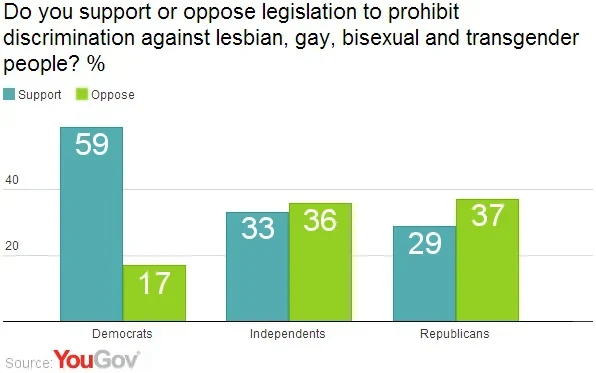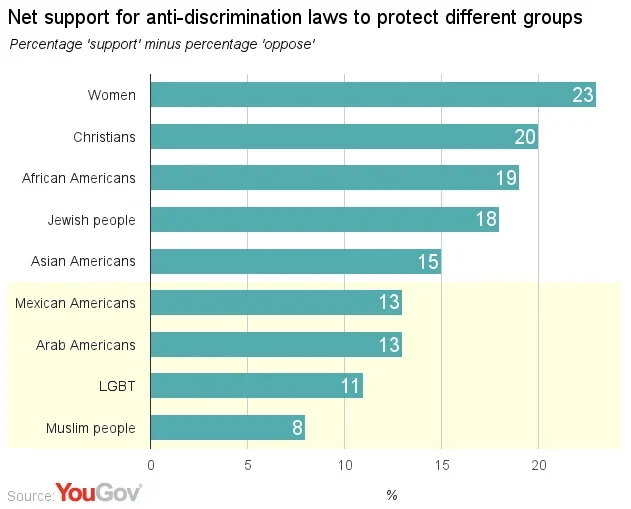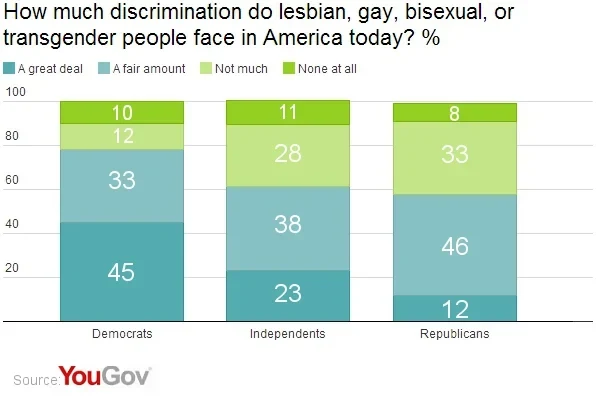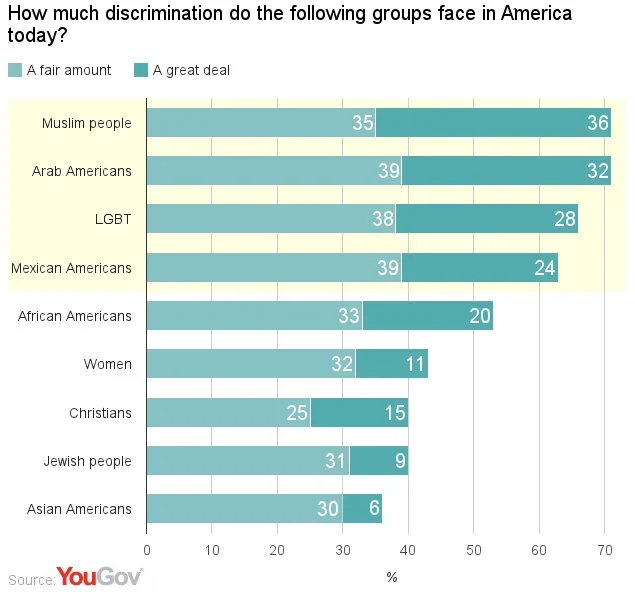While Americans tend to support LGBT anti-discrimination laws, support is weaker than support for laws protecting most other minority groups and is divided along partisan lines
Yesterday the Senate passed the Employment Non-Discrimination Act (ENDA), a law that would prohibit workplace discrimination against gays and transgender people in much the same way that people are protected from racial and sexual discrimination. Ten Senate Republicans backed the bill, but the bill is expected to run into trouble in the Republican-controlled House of Representatives, where Speaker John Boehner opposes the law. President Obama called upon the House to pass the bill, stating that is has "the overwhelming support of the American people, including a majority of Republican voters".
The latest research from YouGov, however, shows that Americans may be more divided than the President suggests. When asked whether they support legislation that would prohibit discrimination against gays and transgender people in general, 41% favor such legislation and 30% oppose it.
Broken down by party, Democrats overwhelmingly support such a law, while Independents are marginally more likely to oppose (36%) rather than support (33%) it. Republicans also tend to be against a law prohibiting LGBT discrimination, but are still largely split, with 37% opposing it and 29% supporting it.

Additionally, when asked about legislation that would prohibit discrimination against a range of groups, support for the LGBT law was near the bottom of the list.
People were most supportive (48% support vs. 25% oppose) of laws prohibiting discrimination against women and least supportive of laws prohibiting discrimination against Muslims, though even here 38% supported anti-discrimination laws compared to 30% who opposed it.

Discrimination in America today
Part of the motivation behind Democratic support for the law may well be a result of Democrats tending to think that gay and transgender Americans face 'a great deal' of discrimination. Democrats are only more likely to say that Muslims (54%) face 'a great deal' of discrimination than LGBT people (45%).

And despite the relatively weak support fot LGBT anti-discrimination legislation, LGBT Americans are perceived to be one of the most discriminated-against groups in the country. Two-thirds of Americans say LGBT people face at least a fair amount of discrimination, including 28% who say lesbians, gays, bisexuals and transgenders face 'a great deal' of discrimination.
A third (32%) say that Arab Americans face 'a great deal' of discrimination but Muslim Americans are viewed as the most discriminated-against group, with 36% saying that they face significant discrimination in the United States.

Interestingly, the four groups seen as most discriminated-against in the United States – Muslims, Arab Americans, LGBT people and Mexican Americans – are the same four groups for which anti-discrimination laws receive the lowest levels of support.
The results also reveal a very wide partisan divide on the degree of discrimination faced by African Americans, with Democrats (40%) tending state that African Americans face 'a great deal' of discrimination and most Republicans (51%) saying that they do not face much at all.
Full poll results can be found here.
Image: Google.








